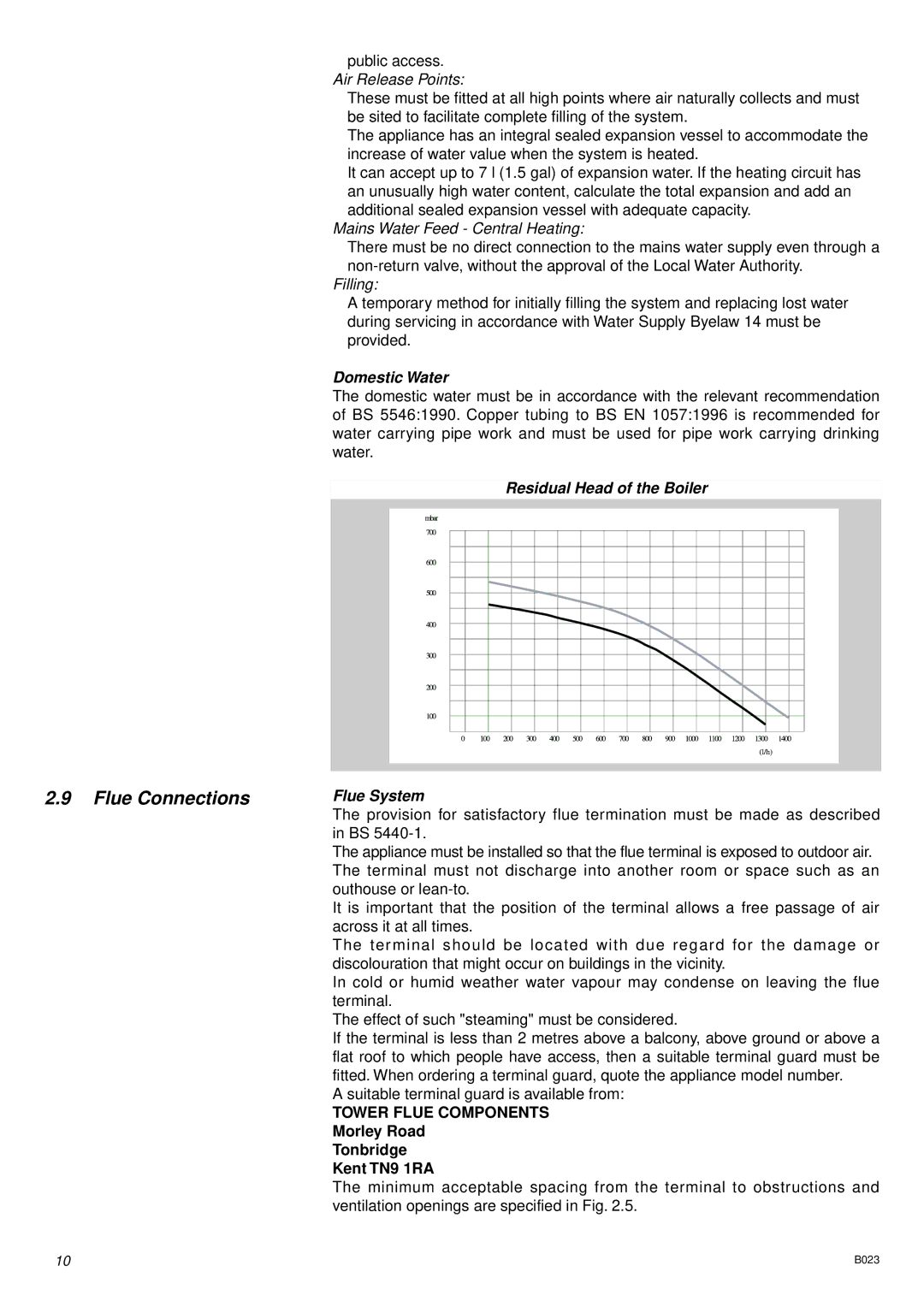
2.9Flue Connections
public access. Air Release Points:
These must be fitted at all high points where air naturally collects and must be sited to facilitate complete filling of the system.
The appliance has an integral sealed expansion vessel to accommodate the increase of water value when the system is heated.
It can accept up to 7 l (1.5 gal) of expansion water. If the heating circuit has an unusually high water content, calculate the total expansion and add an additional sealed expansion vessel with adequate capacity.
Mains Water Feed - Central Heating:
There must be no direct connection to the mains water supply even through a
Filling:
A temporary method for initially filling the system and replacing lost water during servicing in accordance with Water Supply Byelaw 14 must be provided.
Domestic Water
The domestic water must be in accordance with the relevant recommendation of BS 5546:1990. Copper tubing to BS EN 1057:1996 is recommended for water carrying pipe work and must be used for pipe work carrying drinking water.
Residual Head of the Boiler
Flue System
The provision for satisfactory flue termination must be made as described in BS
The appliance must be installed so that the flue terminal is exposed to outdoor air. The terminal must not discharge into another room or space such as an outhouse or
It is important that the position of the terminal allows a free passage of air across it at all times.
The terminal should be located with due regard for the damage or discolouration that might occur on buildings in the vicinity.
In cold or humid weather water vapour may condense on leaving the flue terminal.
The effect of such "steaming" must be considered.
If the terminal is less than 2 metres above a balcony, above ground or above a flat roof to which people have access, then a suitable terminal guard must be fitted. When ordering a terminal guard, quote the appliance model number.
A suitable terminal guard is available from:
TOWER FLUE COMPONENTS
Morley Road
Tonbridge
Kent TN9 1RA
The minimum acceptable spacing from the terminal to obstructions and ventilation openings are specified in Fig. 2.5.
10 | B023 |
